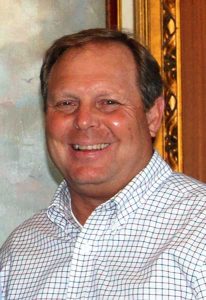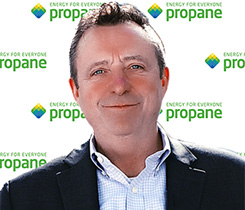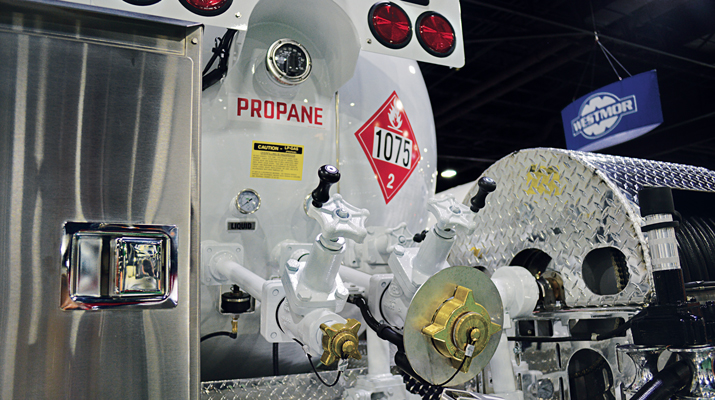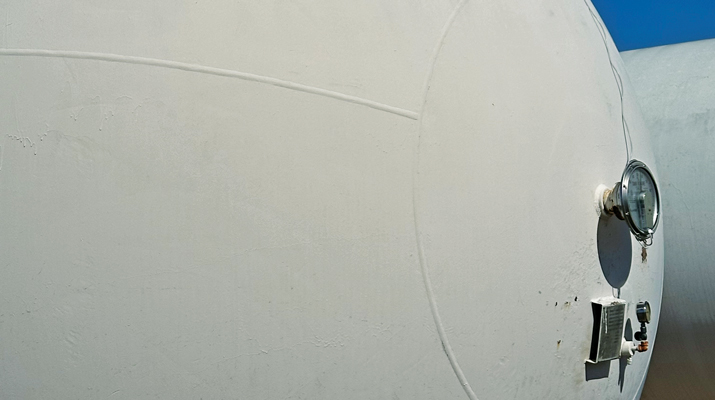A Propane Profile: Blossman Gas’ David Reynolds
David Reynolds started as an assistant branch manager for Blossman Gas in 1985 before climbing the company ladder to his current role as vice president, operations.
As an active member of the propane industry, Reynolds also serves as chairman of the Research and Technology Development Working Group (RTD Working Group) of the Propane Education & Research Council (PERC). Outside of the industry, Reynolds serves his community as a member of the board of directors for the Boys and Girls Club of Jackson County, Mississippi, and the Ocean Springs, Mississippi, school district.
We caught up with Reynolds to better understand his work with PERC and the importance of technology to the propane industry.
LP Gas: Can you tell us how you got started in the propane industry?
Reynolds: Shortly after college, I went to work for a consumer finance company. While there, I was befriended by a customer relationship manager whose husband was the manager of the Blossman Gas branch in Pascagoula, Mississippi. My new friend knew that the consumer finance business was not a good fit for me, and knew that Blossman was looking for someone with growth potential and a strong work ethic. Having grown up on the Mississippi Gulf Coast, I already knew that Blossman was a great company and I had, in fact, applied for a position once before. My friend introduced me to her husband, and then her husband introduced me to Blossman. Thirty-three years later, and the rest is history, as they say. My time working for Blossman has been rewarding as the company continues to live up to the high standards of integrity and employee loyalty for which it is known, and to which I am now able to contribute. Furthermore, I have been fortunate to find my own place within the propane industry, most specifically in my role with PERC’s RTD Working Group.
LP Gas: Throughout your career, what is the biggest technological advancement that has impacted the propane industry?
Reynolds: The biggest technological advancement I have seen is mobile computing and instantaneous communications. Mobile computing allows us to effectively offer point-of-sale transactions from the delivery and service trucks at the customer’s home or business. Cellular communications enable these transactions to be communicated back to our office system almost immediately after they take place. Additionally, cellular communications make it easier for us to reach our customers and for our customers to reach us. It is imperative that we continue to develop this technology to make it as convenient as possible for our customers to do business with us.
LP Gas: Tell us about your work as the chairman of PERC’s RTD Working Group. What is this group’s mission?
Reynolds: It has been an honor serving as chairman of the RTD Working Group. I have had the pleasure of working with some of the most talented individuals in our industry. Our mission is to provide thoroughly vetted advice and recommendations on all types of research, and product and technology development projects to the PERC councilors so we are able to make informed decisions to invest our industry dollars for the betterment of the entire industry. It’s important that all of our projects be consistent and aligned with the current strategy of PERC. It has been exciting to participate on a task force with several councilors, PERC staff members and the other working group chairs in the development of the current strategy.
LP Gas: Can you describe what happens at a typical working group meeting? What is the most pressing issue(s) the group is currently working on?
Reynolds: Each working group meeting begins with a time for reviewing projects in each industry segment, from autogas to power generation. As a committee, we choose projects in each segment that are completely aligned with PERC’s overall strategic priorities. We then move into a solution-finding phase, confirming that there are in fact viable solutions that will align consistently with PERC priorities. We also find or assign a partner to each project who can execute development, production and commercialization of the mission in order to meet the need according to the set PERC goals. These steps ensure that projects do not languish in the idea phase without offering the intended benefit to our industry. In addition, at every meeting we allocate time to review any projects or gaps that we may be missing that would move the industry forward in alignment with PERC goals. The missing components could include newly submitted projects, previously submitted projects that have only recently become relevant and new industry needs for which the RTD Working Group must research and create a project.
While there are many exciting and important projects currently in process under the RTD Working Group’s oversight, the most pressing issues facing our industry today are the concepts of zero net energy and renewable propane. We have just recently begun working on these issues. With the number of conversations taking place throughout the U.S. about eliminating the use of all fossil fuels, it is imperative that our industry move quickly in developing and sharing our great story about propane, a clean-burning, domestic alternative fuel.
LP Gas: Propane management software was the top technology pick in our State of the Industry report. How important is this technology to an operation?
Reynolds: Data is everything in running a good propane retail operation. From having an accurate billing system to being able to forecast a customer’s gas consumption, your management software is a key tool to move forward in an environment of rapidly changing technology. In addition, most propane retailers know that the majority of current customers heat their water with an electric water heater. Those customers already have a propane tank at their home. Just think of the volume we could increase in our businesses if we had a management system, coupled with a good marketing and promotion campaign to get a propane water heater in these customers’ homes.
LP Gas: Do you see any emerging technology that will be the next major impact on the industry?
Reynolds: Currently, we are working on engine technologies to take us beyond 2021. At our most recent meeting, we brainstormed a bit to discuss where we should go from here. We suggested revisiting where propane may fit in the future with fuel cells. Fuel cells and CHP (combined heat and power) could be one of the solutions to zero net energy. We also discussed exploring a concept of how propane may fit in with hybrid vehicle technology.

















